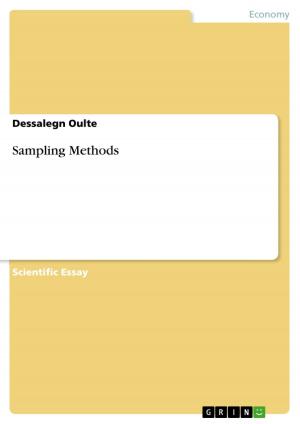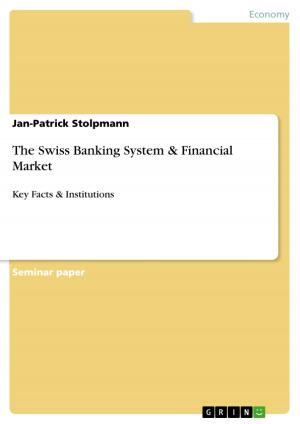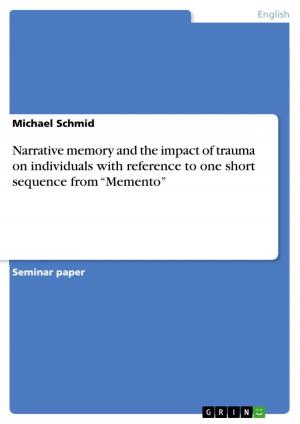Welsh - A vanishing language through English loans
A vanishing language through English loans
Nonfiction, Entertainment, Drama, Anthologies| Author: | Nadine Kröschel | ISBN: | 9783638524391 |
| Publisher: | GRIN Publishing | Publication: | July 20, 2006 |
| Imprint: | GRIN Publishing | Language: | English |
| Author: | Nadine Kröschel |
| ISBN: | 9783638524391 |
| Publisher: | GRIN Publishing |
| Publication: | July 20, 2006 |
| Imprint: | GRIN Publishing |
| Language: | English |
Seminar paper from the year 2002 in the subject English Language and Literature Studies - Linguistics, grade: 2,6, University of Marburg, course: PS Semantics, 6 entries in the bibliography, language: English, abstract: There is a Welsh proverb which says: 'Cenedlheb iaith cenedl heb galon'and which means 'Anation without a language [is] a nation without a heart'. At the beginning of the third millenium Welsh is spoken by around half a milion people in Wales or about 20 percent of the population of 2.7000.000. This is more than double the number that spoke Welsh in the Middle Ages but around half the number that spoke it at the beginning in the 20th century. Welsh is understood by about 750.000 people in Wales. Welsh speakers are scattered in equal numbers all over the country. Some areas in the North and West are thought of as the Welsh heartland because the percentage speaking Welsh there is quite high, from 50 to 80 percent! But nummerically, Cardiff and Swansea areas have as many Welah speakers as the counties of north Wales. Welsh has been spoken for 1600 years and the Welsh language survived until today although people - especially the English people- tried more than once to bann it away. The English language has had and still has a strong influence on the Welsh language. History is one of the main reasons which made the Welsh language vanish.In the first part of my work I will have a look on the History of the Welsh language. What happened in the past that there are only 20 percent of the Welsh population who can speak Welsh left? In the second part I will examine the process of borrowing words from another language. The Welsh language mainly changed through borrowing words from the English language. As well as the Welsh gentry adopted the English manner and culture it also adopted the English language. In this part I will look in which way both languages borrowed from another and what were the reasons for borrrowing. In the last part I will answer the question if Welsh is a vanishing language and if it is the fault of the English language that Welsh nearly died out.
Seminar paper from the year 2002 in the subject English Language and Literature Studies - Linguistics, grade: 2,6, University of Marburg, course: PS Semantics, 6 entries in the bibliography, language: English, abstract: There is a Welsh proverb which says: 'Cenedlheb iaith cenedl heb galon'and which means 'Anation without a language [is] a nation without a heart'. At the beginning of the third millenium Welsh is spoken by around half a milion people in Wales or about 20 percent of the population of 2.7000.000. This is more than double the number that spoke Welsh in the Middle Ages but around half the number that spoke it at the beginning in the 20th century. Welsh is understood by about 750.000 people in Wales. Welsh speakers are scattered in equal numbers all over the country. Some areas in the North and West are thought of as the Welsh heartland because the percentage speaking Welsh there is quite high, from 50 to 80 percent! But nummerically, Cardiff and Swansea areas have as many Welah speakers as the counties of north Wales. Welsh has been spoken for 1600 years and the Welsh language survived until today although people - especially the English people- tried more than once to bann it away. The English language has had and still has a strong influence on the Welsh language. History is one of the main reasons which made the Welsh language vanish.In the first part of my work I will have a look on the History of the Welsh language. What happened in the past that there are only 20 percent of the Welsh population who can speak Welsh left? In the second part I will examine the process of borrowing words from another language. The Welsh language mainly changed through borrowing words from the English language. As well as the Welsh gentry adopted the English manner and culture it also adopted the English language. In this part I will look in which way both languages borrowed from another and what were the reasons for borrrowing. In the last part I will answer the question if Welsh is a vanishing language and if it is the fault of the English language that Welsh nearly died out.















